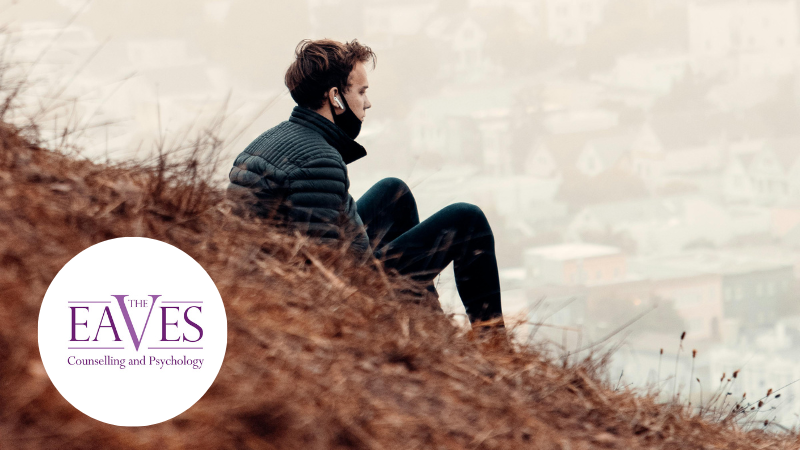Young People and Loneliness: Why Young Adults Are Feeling Lonely
By Evangelina Rocha, Counsellor
Loneliness can be very powerful: it can have a great impact in people’s lives and health. As social beings, we tend to suffer when we feel lonely and isolated, and it can affect how we see the world and ourselves. A recent study on loneliness by the BBC highlighted that feelings of loneliness among young people have increased. There are many causes for this, and the root of the issue can be very personal and specific to the person’s circumstances and their mental health, but I have created a list that may give an idea of the challenges that young people are facing, and how it can affect the feelings of isolation and loneliness.
Paradox of hyper-connectivity: Nowadays it’s easier than ever to stay connected to each other: we are constantly in touch with people, we see their social media pages, we text friends, we watch Tik Tok videos, and we can instantly know what strangers all over the world are up to just by opening an app on our phones. It seems ironic that this could actually increase the feeling of isolation, but it can. These superficial connections that people attain by liking, following, and watching videos, don’t replace face to face interactions – and they can lead to a false sense of connection- leaving young people feeling more isolated, because the need for connection hasn’t actually been fulfilled. Also, social media can lead them to be in constant comparison to other people’s lives (friends and strangers) which can lead to feelings of inadequacy, and loneliness. For example, if you feel like you don’t fit in with the new trends, you don’t have that ideal social life some people may seem to be having, or you don’t look like your favourite influencers, it can lead you down the path of feeling like you don’t belong.
Transitional phases and changing social dynamics: People in young adulthood are going through big life transitions: deciding a career path, moving out of the family home, moving in with a partner, among many others. Social life as they knew it can be very different as they transition from adolescence to adulthood. This means that they are balancing old and new friendships, the pressure to “be” adults and making big life decisions. This can shift their balance and bring new difficulties and insecurities that can intensify the feeling of loneliness if there isn’t enough support or if they were already dealing with similar feelings.
Expectations: Nowadays, it can be easy to be swept by society’s expectations of what life goals should be met by certain ages. Young people could find themselves thinking that they failed if, for example, they aren’t homeowners by a certain age, or if they haven’t found their dream job. Expectations of what life should be like can lead to feelings of failure because they may feel like everyone else is doing certain things and they aren’t, or “other people seem to have it together” and they don’t feel that way about themselves. This could heighten those feelings of isolation, making them feel like they are the “only one” who is feeling this way.
Loss: Life transitions can also bring loss of relationships. Perhaps old friends have moved away, and relationship dynamics have changed as people grow and find their own paths. Young people can go from belonging to a group of friends who saw each other regularly and with whom they shared interests and life’s challenges, to having fewer friends that they see from time to time. Sometimes young people even find themselves with no friends as interests change and people become busier with work and other commitments. This is a type of loss that doesn’t get talked about much, however, it can leave young people feeling lonely, hurt, and longing for how things were in the past.
If you feel that this relates to you or someone you know, sharing and starting conversations around loneliness could be helpful. Loneliness can impact the way you think about yourself, others, and the world, so sharing and talking can be the first step towards finding ways to feel better and more connected.
You can find the BBC article here:
The Anatomy of Loneliness – Who feels lonely? the results of the world’s largest loneliness study, BBC Radio 4. Available at: https://www.bbc.co.uk/programmes/articles/2yzhfv4DvqVp5nZyxBD8G23/who-feels-lonely-the-results-of-the-world-s-largest-loneliness-study (Accessed: 17 November 2023).
The Eaves Counselling and Psychology
The Eaves Counselling and Psychology Ltd is a select professional body of Counsellors, Psychotherapists and Psychologists, providing high quality psychological care Monday to Saturday between 9am and 9pm from our practices in Guildford, Godalming, Farnham, Haslemere and online.
Find your practitioner in five easy steps
Are you a business owner or would like more support from your job? The Eaves’ own Employee Assistance Programme (EAP) service for small to medium businesses is easy, affordable and gives staff instant access to our large team of in-house Counsellors and Psychologists at a time and date to suit them. Contact us to find out more about our EAP service
If you need immediate support please find our list of useful contacts

